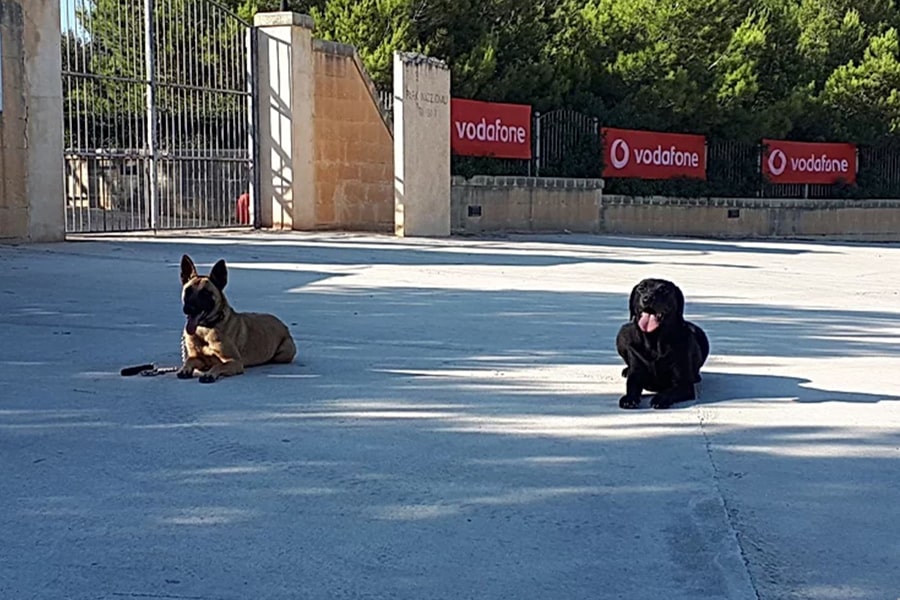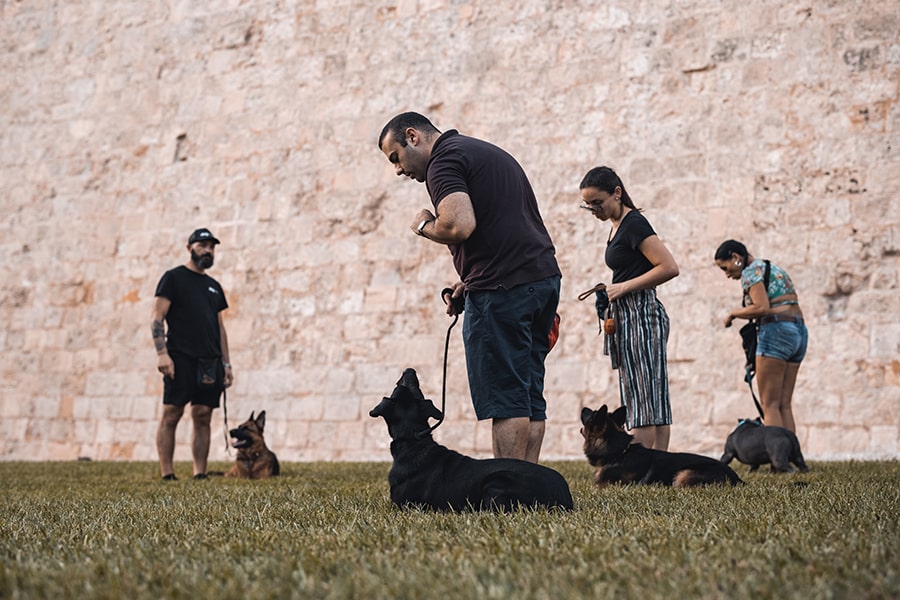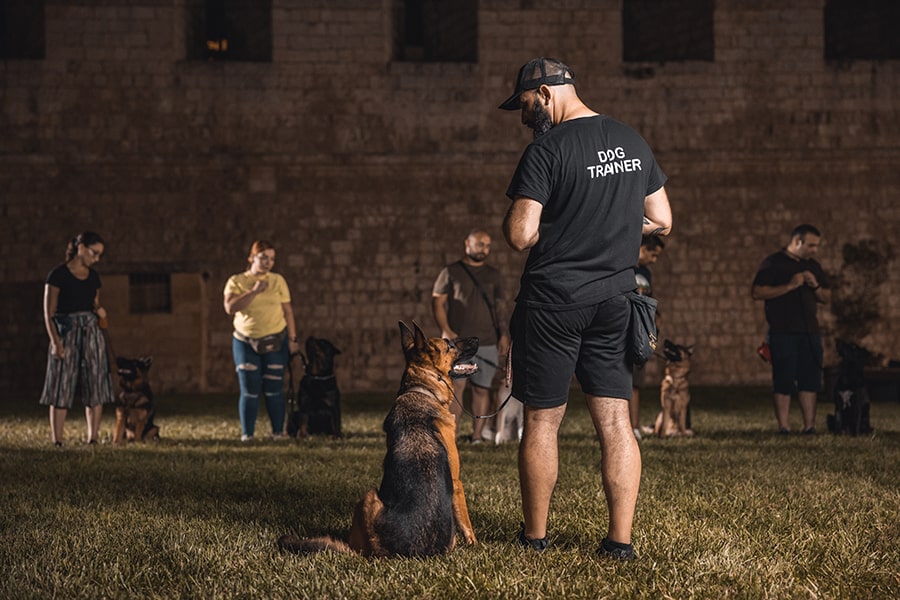
About
Robert Bugeja Dog Training and Behaviour
I have always been passionate about dogs. We started our journey in 2008 when we welcomed our first Labrador retriever. Throughout her early years, we focused on house training, how to be educate dog and also introduce her to obedience levels. Now a days she is retired and she is part of our family.
As this was achieved successfully, we got our second Labrador retriever, Roy. These experiences motivated me to further my studies in Dog training and behavior with ADTB Academy.

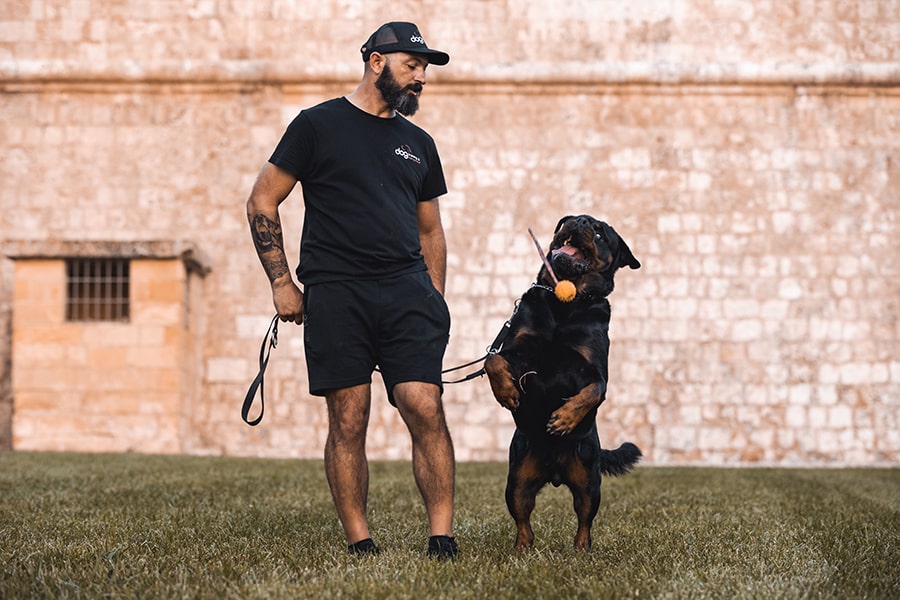
Frequently Ask Questions
Anxiety
A dog with severe anxiety won’t be distracted by even the tastiest treats. You’ll need to slowly get him used to your absence.
He may start to get nervous when he sees signs you’re about to leave, like putting on your shoes or picking up your keys. So do those things, but then don’t leave. Put on your shoes and then sit down at the table. Pick up your keys and watch TV. Do this over and over many times a day.
When your dog starts to feel less anxious about that, you can slowly start to disappear. First just go on the other side of the door. Ask your dog to stay, then close an inside door between you. Reappear after a few seconds. Slowly increase the amount of time you’re gone. Put on your shoes and pick up your keys. Ask your dog to stay while you go into another room.
As he gets more used to the “stay game,” increase the amount of time you’re gone. Then use an outside door, but not the same one you go out every day. Make sure your dog is relaxed before you leave.
Only you can tell if your dog is ready to be left alone for longer periods. Don’t rush things. Give him a stuffed treat when you’ve built up to 10 seconds or so apart. Always act calm when you leave and when you return.
Gradually build up the time until you can leave the house for a few minutes. Then stay away for longer and longer periods.
For All Dogs
Make sure your pet gets lots of exercise every day. A tired happy dog will be less stressed when you leave. Its also key that you challenge your pets mind. Play training games and fetch. Use interactive puzzle. Working his mind as well as his body. That will keep him busy, happy, and too tired to be anxious while you’re gone.
Why training a dog is so important?
Dogs are a separate species from people and as such, they have their own special needs and natural instincts. They communicate differently than humans. When we bring a dog or puppy into our homes and our lives, we are asking them to change much of what is natural about their existence. We not only need to teach them how to fit in but also teach ourselves about their needs so that we can learn to accommodate them and adjust our expectations to make the best possible situation for both species; dog and human. If we do not take the time to train our dogs and educate ourselves we will both be frustrated and not nearly as happy as we could be.
Our Simple Process
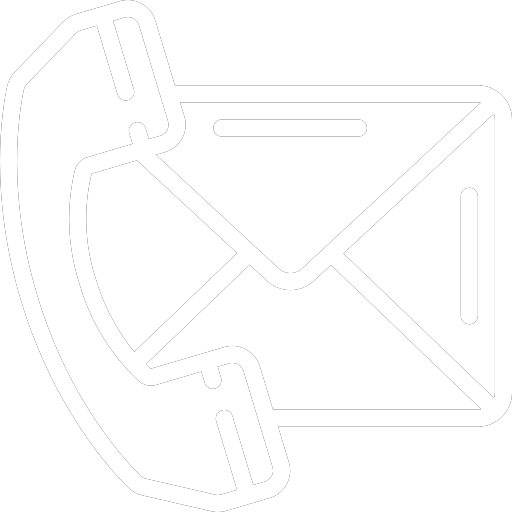
Step 1: Contact Us
to book a phone call

Step 2: Consultation
to answer all of your questions

Step 3: Start Process
only if you are ready and comfortable
What our clients says about us
TESTIMONIALS

Robert is the best!! Very helpful and understanding. My dog enjoys going for his weekly lesson

Great trainer ! Robert shows you that really loving your dog doesn’t mean spoiling them, but rather teaching them proper obedience so that we can enjoy them everywhere we take them.Highly recommended !!

A very professional dog trainer with loads of patience and dedication. He knows his work perfectly, the two words highly recommended are not enough to really thank his impeccable service . Well done you did a great job with our dogs.

helped us alot !for sure the best dog trainer on the island , patient and after all you see the results ! thanks for making our dog a good dog

I’d highly recommend working with Robert. His passion for dogs and upbeat nature make class engaging and enjoyable. He has a tremendous depth of knowledge with extensive experience in a wide range of training and behavioral situations. He teaches so much more than just sit and stay and educates owners about dogs and proper dog ownership!
Robert helped from the puppy stage through adult-level training, one-to-one, and training classes. He worked also to remedy unwanted dog behavior at home! It is always a pleasure going to lessons both for us as owners and for our dog Zeus!
Thank you for your guidance in sharing your gift.

In August 2021 I went for a consultation with Robert Bugeja after feeling worried that my British Staffordshire Bullterrier seemed to be too shy & also reactive with dogs. Since day 1 Robert has helped me get the dog slowly out of his shell, he taught me understand dog behavior & its meaning & through 1 on 1 coaching both myself & my dog learnt how to better interact with each other, my dog became more confident & obedient & less stressed around other dogs. I kept going to training every week for a year & stopped going only because I left Malta. A well trained dog is a happy dog. Thanks Robert for making my dog happy!

